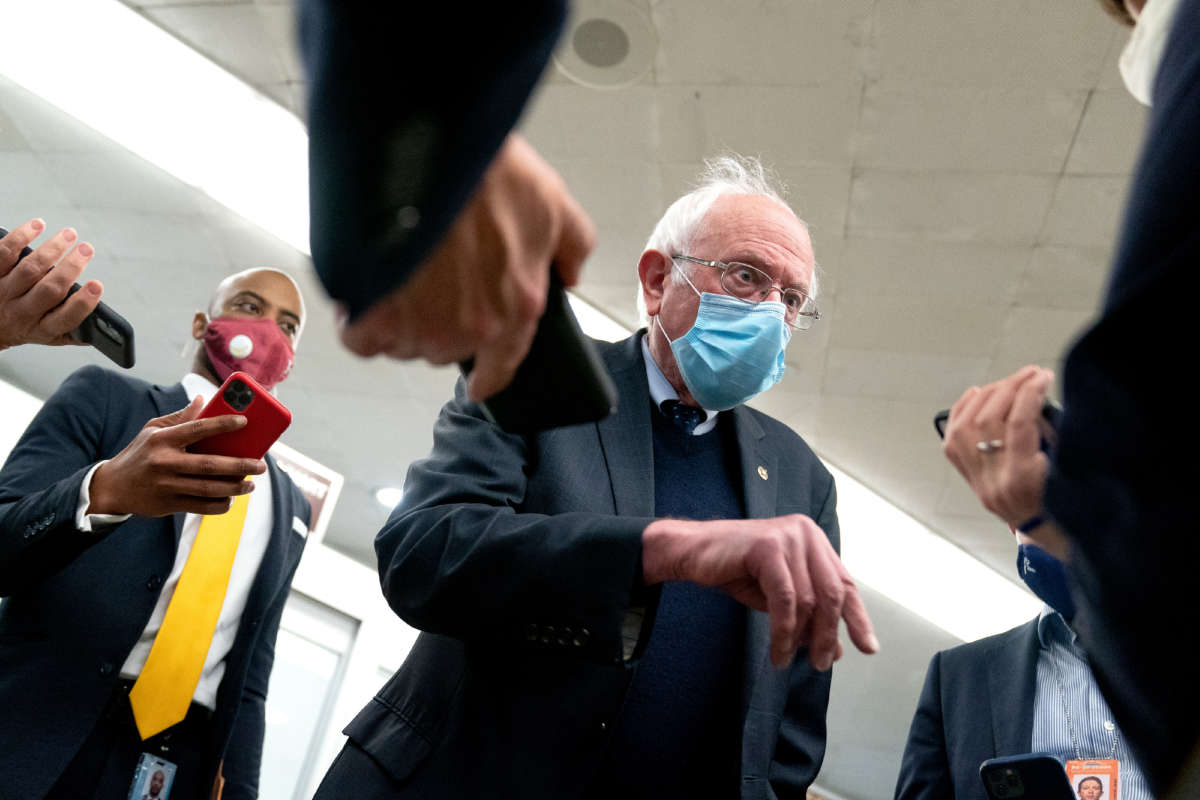A new report done by the U.S. Government Accountability Office (GAO) has found that drug prices in the U.S. on average are about two to four times higher than they are in Australia, Canada and France.
The GAO selected 20 name brand prescription drugs to compare the retail prices for each drug in the selected countries. While some drug prices were lower, some net prices for drugs in the U.S. were as much as 10 times higher than the prices in other countries.
“For the 20 drugs in our review for which we had pricing data for all three selected comparison countries in 2020, estimated U.S. net prices at the manufacturer level were about four times higher than gross prices in Australia and France and about 2.5 times higher compared to Canada (Ontario),” the report reads.
The report was commissioned by Sen. Bernie Sanders (I-Vermont), who last month introduced a set of bills aimed at lowering prescription drug costs in the U.S. The bills would peg the price of prescription drugs to that of other countries like Canada and France, allow the government to negotiate drug prices, and open an avenue for patients and providers to safely import drugs from other countries like Canada.
“This important GAO study confirms what we all already know: the pharmaceutical industry is ripping off the American people,” said Sanders in a statement. “The time is long overdue for the United States to do what every major country on earth does: negotiate with the pharmaceutical companies to lower the outrageous price of prescription drugs.”
France and Australia both have universal health care systems that cover prescription drugs, but Canada is the only country with universal health care that doesn’t cover prescription drugs. Still, even comparing retail prices for those without prescription drug coverage in the U.S. and Canada, prices ranged from two to eight times higher in the U.S., despite the countries’ similar lack of government assistance for drugs.
For the drug Harvoni, for instance, which treats Hepatitis C, the cash price for 28 tablets is USD $19,084.54 in Canada but a whopping $46,570.33 in the U.S. Thirty tablets of a blood clot treatment called Xarelto is USD $85.44 in Canada but $558.33 in the U.S.; thirty inhalations of Anoro Ellipta Inhalation Powder, which treats chronic obstructive pulmonary disease, costs USD $84.99 in Canada but $514.33 in the States.
The GAO study authors also note that the disparities in drug prices between the countries could easily be even higher.
“Publicly available prices for the comparison countries were gross prices that did not reflect potential discounts,” they write. “As a result, the actual differences between U.S. prices and those of the other countries were likely larger than GAO estimates.”
Sanders called on President Joe Biden to address prescription drug prices in his American Families Plan that the White House released Wednesday. Sanders said in a statement that he was urging “the President to put this proposal in the American Families Plan and use the savings to expand and improve Medicare for older Americans. We can no longer tolerate the American people paying, by far, the highest prices in the world for prescription drugs.”
The White House plan notably does not include provisions to lower drug prices, despite calls from Democrats in both chambers of Congress for Biden to include proposals like allowing Medicare to negotiate drug prices.
It’s currently unclear if the administration plans to tackle drug prices in a different proposal. Administration officials have provided no explanations for its exclusion, according to Politico, but say that the president “remains fully committed” to negotiating prescription drug prices.
Democrats say that they’re going to forge ahead without Biden on the issue, and House Democrats have already reintroduced their drug price negotiation bill, for which they will hold a hearing next week. Sanders, Politico reports, said he’ll also be introducing drug price legislation in the Senate soon.
Join us in defending the truth before it’s too late
The future of independent journalism is uncertain, and the consequences of losing it are too grave to ignore. To ensure Truthout remains safe, strong, and free, we need to raise $43,000 in the next 6 days. Every dollar raised goes directly toward the costs of producing news you can trust.
Please give what you can — because by supporting us with a tax-deductible donation, you’re not just preserving a source of news, you’re helping to safeguard what’s left of our democracy.
